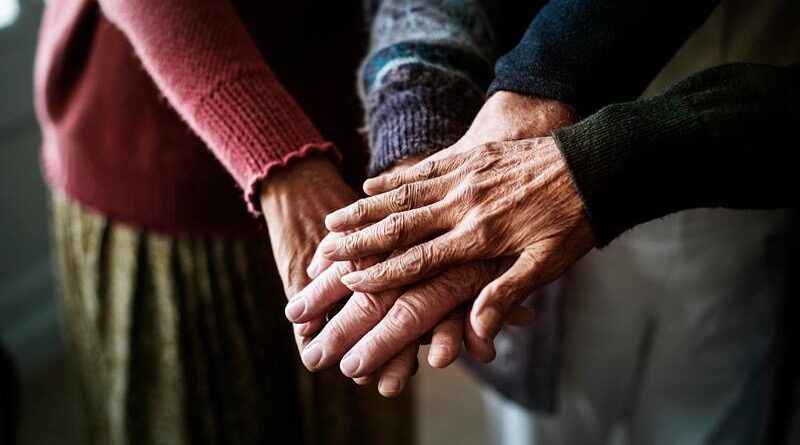Health Information Without Borders: The Struggles and Strategies of Older Chinese Adults in Canada
Health Information Without Borders: The Struggles and Strategies of Older Chinese Adults in Canada
Xiaoqian Zhang, Yi Wan
Have you ever struggled to find the right health information, unsure of where to turn or what advice to trust? For many older Chinese adults in Canada, this challenge is even greater. They often face situations such as navigating a complex healthcare system, overcoming language barriers, and balancing traditional health beliefs with Western medical practices. These challenges can impact how they make health decisions and their overall well-being. Through in-depth interviews with 20 older Chinese adults in Canada, our research explores various factors related to how they seek and use health information. What did we uncover? Join us as we delve into their stories and the broader implications for health equity in Canada.
—Through in-depth interviews with 20 older Chinese adults in Canada, our research explores various factors related to how they seek and use health information—
“Everything is so different”: Navigating the healthcare system
Many older Chinese adults faced difficulties navigating Canada’s healthcare system and finding health information. One shared his frustration: “I feel like, here, you have to make an appointment to see a family doctor. It’s not like China, where you can go anytime you want. Here, you can’t do that.” This reflects how cultural differences shape the way people seek health information. Even after moving to a new country, immigrants often stick to familiar sources when looking for health advice.
Some older Chinese adults in our study shared experiences of microaggression based on their age and feeling less in control over managing their diabetes in healthcare settings. For example, one woman described her frustration:
“The doctor told me, ‘You’re 76 years old, and you’re getting worse every year.’ Well, I already know that. But he shouldn’t say it like that, should he? He always thinks I’m old, and that it’s a miracle I’ve lived this long with my condition.”
Others felt they had no choice but to follow medical advice, even when they had doubts. One example came from a 77-year-old man who explained:
“Honestly, I don’t fully trust doctors, but what else can you do? My physical condition is getting worse.”
The above findings highlight the need to explore how older Chinese adults can feel more empowered in their healthcare interactions. Healthcare providers should create an environment where they feel respected, heard, and actively involved in their own care.
“Who can I talk to?”: Social support and shared identity
 Our study found that some older Chinese adults felt isolated and lacked supportive networks in Canada, as one told us: “I don’t have any friends here. I don’t know anyone, and my social circle is very small”. This small social circle limited older Chinese adults’ opportunities to seek and share health information.
Our study found that some older Chinese adults felt isolated and lacked supportive networks in Canada, as one told us: “I don’t have any friends here. I don’t know anyone, and my social circle is very small”. This small social circle limited older Chinese adults’ opportunities to seek and share health information.
We also found that older Chinese adults preferred to seek and share health information with people from their own ethnic background. A phrase we often heard was, “We are all Chinese.” This shared identity created a strong sense of belonging, where people trusted health information exchanged within their community. They also felt more comfortable sharing their own knowledge and experiences.
These findings highlight how important social networks are in shaping health decisions. It aligns with other research showing that family and friends often help older adults communicate with healthcare providers. Given this, healthcare systems should recognize and support the role of social networks in patient care, ensuring that older adults have access to the information and support they need.
“How can you see a doctor if you don’t speak English/French?”: Language barriers
Living in an English- or French-speaking country created language barriers for older Chinese adults. Many struggled to search for health information online and instead turned to libraries, radio, newspapers, and community lectures. Some also needed translators to communicate with doctors. A striking example comes from an 82-year-old woman who described her current family doctor as unprofessional and irresponsible. Despite this, she hesitated to switch doctors solely because her current doctor could communicate with her in Chinese. This finding highlights how language differences can limit people’s access to reliable health information.
“That’s kind of my business”: Individual coping mechanisms and lifestyle
We found that Chinese older adults in Canada developed four different coping styles when managing their health:
- Proactive Individuals: These people believe they have control over their lives and future. They actively set goals and stay determined, even when facing challenges.
- Conscientious Individuals: They are responsible and careful. They like to plan, work methodically, and avoid mistakes by being diligent.
- Passive Individuals: This group prefers to stay in their comfort zone. They avoid risks and effort, which may limit their involvement in managing their health.
- Apathetic Individuals: These individuals show little motivation or belief that their actions will make a difference. They often give up when faced with difficulties.
Older Chinese adults’ lifestyles also impact how they seek and use health information. For example, a 76-year-old man often saves received information for future references, saying that “it’s a lifestyle, a habit developed over many years… I have a special notebook where I collect a lot of diabetes-related information”.
The above findings highlight the need for healthcare providers and policymakers to consider personal differences when sharing health information. If health messages are tailored to individual coping styles and lifestyles, they are more likely to be useful and effective.
Implications
Our findings highlight various factors, such as personal coping styles, social networks, shared identity, and language barriers, that all shape how older Chinese adults navigate the healthcare system. To ensure equitable healthcare access, we must provide individualized and multilingual resources, train culturally competent providers, and recognize the role of community networks. When health information is clear, accessible, and culturally relevant, older Chinese adults can make informed choices and take control of their well-being. It’s time to ensure that no one is left behind in Canada’s healthcare system.
Cite this article in APA as: Zhang, X., & Wan, Y. Health information without borders: The struggles and strategies of older Chinese adults in Canada. (2025, April 29). https://informationmatters.org/2025/04/health-information-without-borders-the-struggles-and-strategies-of-older-chinese-adults-in-canada/
Authors
-
Xiaoqian (Zoey) Zhang is interested in information behaviour, information divide, public health, thematic analysis, and bibliometric analysis. She got her PhD at the School of Information Studies, McGill University.
View all posts -






